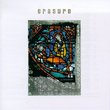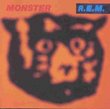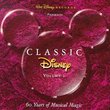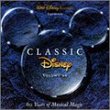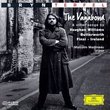| All Artists: Giuseppe Verdi, Carlo Maria Giulini, Plácido Domingo, Montserrat Caballé, Ruggero Raimondi, Sherrill Milnes, Shirley Verrett, Giovanni Foiani, Simon Estes, Ryland Davies Title: Verdi: Don Carlo Members Wishing: 0 Total Copies: 0 Label: EMI Classics Original Release Date: 1/1/1970 Re-Release Date: 8/15/2000 Album Type: Original recording remastered Genre: Classical Style: Opera & Classical Vocal Number of Discs: 3 SwapaCD Credits: 3 UPCs: 724356739727, 724356739758 |
Search - Giuseppe Verdi, Carlo Maria Giulini, Plácido Domingo :: Verdi: Don Carlo
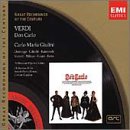 | Giuseppe Verdi, Carlo Maria Giulini, Plácido Domingo Verdi: Don Carlo Genre: Classical
Politics, love, and family conflict make a heady brew in Verdi's masterpiece, originally set to a French text for Paris in 1867. In 1882, the composer made an Italian version with big cuts, lopping off the entire first ... more » |
Larger Image |
CD DetailsSynopsis
Amazon.com Politics, love, and family conflict make a heady brew in Verdi's masterpiece, originally set to a French text for Paris in 1867. In 1882, the composer made an Italian version with big cuts, lopping off the entire first act, which here is restored by Giulini. His pointed, nuanced conducting makes this recording the best available. An ideal Don Carlo requires the unattainable: five great singers and an expert Verdi conductor. This 1970 set has glorious voices that don't dig deep enough for this multilayered drama. The young Domingo sounds fresh, but lacks the free top that the part needs. Milnes has the voice for Rodrigo but, like Domingo and Caballé, is too generalized. Raimondi is too light-voiced for Philip, and the confrontation scene consequently lacks the chilling tension that Tito Gobbi and Boris Christoff bring to it on an earlier EMI cut led by Gabriele Santini. Rival recordings have bigger flaws and few of the virtues that are displayed here, such as Caballé's extraordinarily beautiful if detached singing. True Verdians also will want Pappano's French version, also on EMI, which features Alagna as the hapless prince. --Dan Davis Similarly Requested CDs
|
CD ReviewsTAKING SOUNDINGS DAVID BRYSON | Glossop Derbyshire England | 08/26/2005 (5 out of 5 stars) "Opera in sound alone can never be the full monty, just as Shakespeare on the radio can't be. The grander the Grand Opera the more true this is, and Don Carlo is bigger in scope even than Aida. It is about a lot more than the story of a love-triangle set against a background of armies, slaves, pyramids and elephants: there are four parties to the love-interest alone, the role of Posa is nearly as important as any of them, and the action takes in the fate of the royal house of Spain, the imperial dominion in Flanders and the overweening power of the Spanish Inquisition. It cries out for staging. However in sound alone the Grand Inquisitor without his garb will have difficulty in being more than a disembodied bass voice given that his is a rather small part, and however dramatically kings, princes, princesses and nobles sing and act with their voices I can't help finding myself more concerned with them as sopranos, tenors, baritones and basses than as the dramatis personae they would be for me in the opera house. When recommending a Don Carlo on disc I therefore focus mainly on the musical side. In any case there is no possible risk that if this music is sung properly it will come across as a concert - Verdi sees to that. He was a dramatist to the marrow of his bones, and the listener at home has only to follow the words in order to be caught up in the grand sombre tragedy that Verdi has burned into music. The best performance on disc, for me, will be the performance that most consistently conveys both power and beauty, because this opera is about tormented human emotions at the mercy of ruthless political power in addition to their own tragic fallibility. None of that needs any staging when conveyed in music like this. It would be a tall order to expect any performance of this outsize opera to be perfect. It is not a perfect work itself, on any showing. Even by Verdi's standards it went through an enormous amount of rethinking and revision, and it has surely the most peculiar and unconvincing conclusion there can ever have been in a work of its stature. A worthy performance has to convey total and absolute belief and commitment, but the focus has to be on beauty as well, more than would be so in the opera house, because sound is all we have. One doesn't have to get far into the first act to realise that this Don Carlo is going to score quite exceptionally highly in point of beauty. Domingo is in superb voice, and Caballe surpasses herself. As the work goes on I suppose it might be fair to say that her lower register is not the equal of her higher, but this is Verdi and not Wagner. Wagner pitches his solo parts reasonably so as not to put strain on the voices, Verdi exploits the upper range of every voice except the bass with remorseless partiality, and Caballe rises to his monstrous demands magnificently. Eboli is a mezzo role, but the challenge Verrett has to overcome is hardly less in that respect, and her confession of the theft of the jewel-box is perhaps the final solo gem in a performance that is a jewel-box itself. Not everyone is absolutely right - the Grand Inquisitor's voice is too youthful, but I have very little criticism indeed to make of any of the major roles. Raimondi as the king seems perfectly good to me, and Milnes delivers a fine rendering of the part of Posa, combining power and inwardness, sometimes at one and the same time. If there is a high spot to the entire performance it is surely the quartet in act IV, a sublime outpouring of beautiful sound from all the principals together. In the last analysis this Don Carlo surpasses any other I have ever heard for its combination of sheer beauty with wholehearted power. Giulini was born to conduct it, and I doubt I have a single criticism of anything he does from start to finish. The recording is now 35 years old, but you might not be able to tell. Now only weeks from Giulini's passing I am especially glad to be able to give such an unqualified endorsement to what I believe to be one of his finest achievements, indeed one of the finest opera recordings I know. It's only to be expected that there are details that one prefers in other accounts, but for sheer consistent quality at the highest level I would say your search can safely end here." Guilini's masterwork of conducting! D. J. Edwards | Cheshire, CT United States | 09/15/2001 (5 out of 5 stars) "This is Giulini's recording from beginning to end. Few have been able to handle this sprawling masterful scoring with such finesse and ensemble. Coming in at over three hours, this score is awesomely demanding but at the same time contains some of Verdi's most glorious music. Its arias are well known from concerts. It is the ensembles and choruses that are so amazing particularly the auto-da-fe scene. For me there is no wasted music or fill-ins which I cannot say for all of verdi's operas. I think this is one of his most masterful works. However, it is not Giuini's show alone. Caballe, Domingo and Milnes are exemplary and Caballe does some of the most beautiful singing to be heard in all of Verdi's recorded operas. Only does Milanov in the RCA Aida equal this beauty but that is personal taste. This said Caballe is a vocal miracle. Her aria and the duet in Act V are sung with ravishing beauty. Domingo is in ringing tone and MIlnes more suave than usually and both rich of timber as usual. All true Verdi voices. Raimondi and Foiani fall a little short. Ramondi because his voce does not have the power of a Christoff or Ghiaurov who owned these roles in their prime. Raimondo does have beauty of tone. Foiani was having a bad "hair" Day. Phoning in would have been no worse. Enough said. Talvela has had no equal in this short but pivotal role. He is absolutely frightening in the London set. Speaking of that London set Ghiaurov is beyond praise, Bergonzi beautiful of tone and Tebaldi right after Caballe a great Elisabetta. For is its overall superb quality, Giulini's "Don Carlo" a "must have" and for me not all verdi is a must have. The sound is also quite spectacular." A CAST ASSEMBLED IN HEAVEN Shawn Chua | Singapore | 06/01/2001 (4 out of 5 stars) "This benchmark recording has already earned all the accolades extolled by critics and laymen alike possible, and this one more wouldn't hurt and wouldn't tip the balance.Giulini is undoubtedly the driving force behind this fantastic recreation and realisation of one of Verdi's greatest operas. The cast of characters are no less worthy of acclaim. No expense was spared in organsing and arranging for this magnificent heaven-sent cast to come together in this union.Don Carlo was originally written in French and was in five acts. Several other versions appeared, including translations into Italian and what is presented here is the original five act opera, in Italian translation. Some may gripe that the original flow of Verdi's intentions were lost in the translation, but being as idiomatic as it is, Italian doesn't jar on the ear and makes an acceptable alternative, and is in fact, the more popular version of the opera.Domingo's Carlos, as compared to his later recording in French for DG, is young-sounding. His darker tone in the later recording may bring forth the character's passion and intensity, but it is this recording in which Domingo made his mark. He sings well, his voice capable of encompassing the tumultous emotions running amok with his character.Shirley Verrett as Eboli is truly stunning. She charms and seduces with the Veil Song, her voice taking on a languid and sanguine tone. She however, strings it along well, her husky voice purring away like an engine. It is the test-aria, O don fatale, in which she pulls out the stops. She invests totally into the character, physically and mentally. The perilous stretches and reaches of the role's tessitura are no hurdle for her. Her voice takes on a harsh and relentless quality as she pleads for forgiveness. Her chest notes are remarkable for their depth and intensity. No less respectable are the high notes which she hits effortlessly and spot-on.Raimondi as Filippo is a tortured soul in torment. His gravelly voice may not be as dark as preferable, but it is convincing. His anguish and pain is clearly felt. Milnes' Rodrigo is executed without any major hitch as well. His duets with Domingo are well-sung, with the voices blending. The supporting cast is also deserving of their bouquets.The star of the show must be Montserrat Caballe. As Elisabetta, she may be less than involved and immersed, but her singing is top-notch and of the highest standard. Her voice is perfectly suited for this regal role. Lush, plush and rich, her singing more than makes up for her character development. As demanding as the test-aria in the final act is, Caballe aces it by her reading. Her tone, full and concentrated, she builds up the aria from scratch and imbues in the role an intensity unmatched and a delicacy unheard of. She ends the aria by stringing the last phrase together in a long-held pianissimi straight from the heavens.A pity is that she did not "misbehave" in this recording. She has been known on two other occasions, to end the opera with a literal bang. She emits a blood curdling scream to bring out the opera and where most other sopranos would let the orchestral chords do their part, she has sucessfully held on to her scream, closing the scene, the act and the opera in tandem with the ochrestra. This would have meant at least a 20 second hold of a top note at maximum volume!Giulini leads the Royal Opera House Orchestra in a taut and incisive performance. The lower strings are notably poignant.This is the benchmark and reference recording and it is justly so. Get it or regret it!"
|

 Track Listings (26) - Disc #1
Track Listings (26) - Disc #1